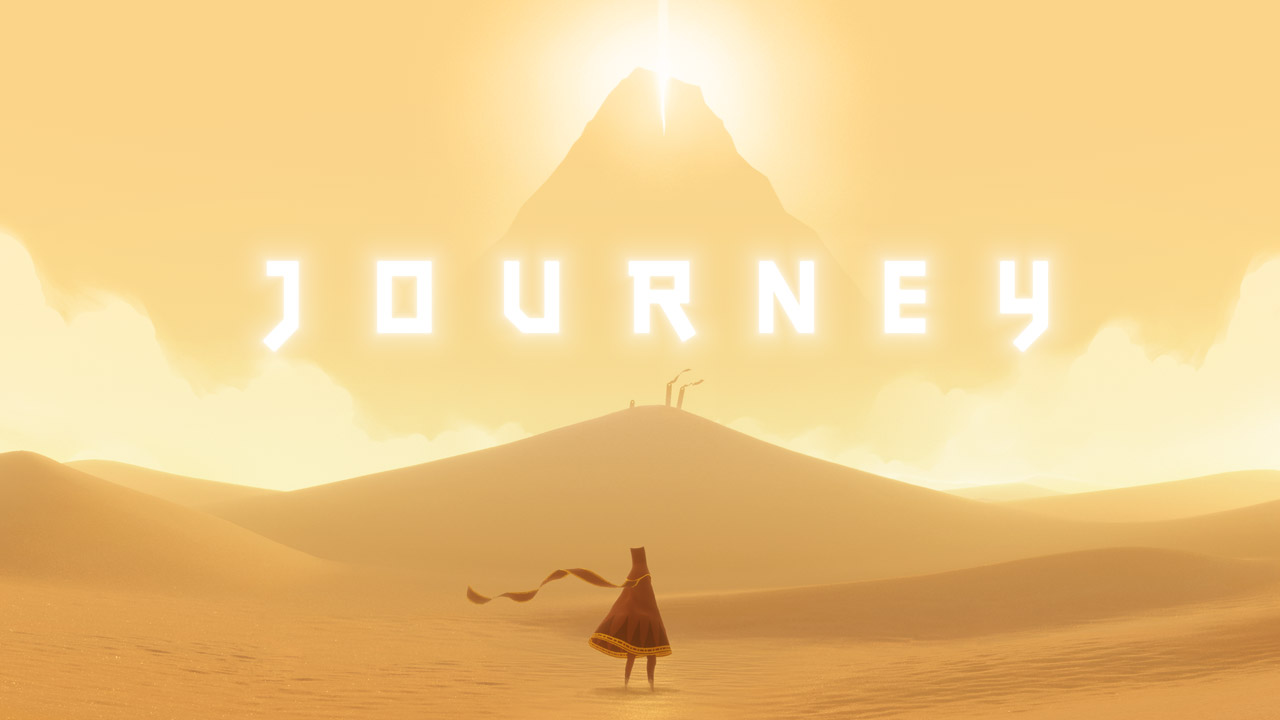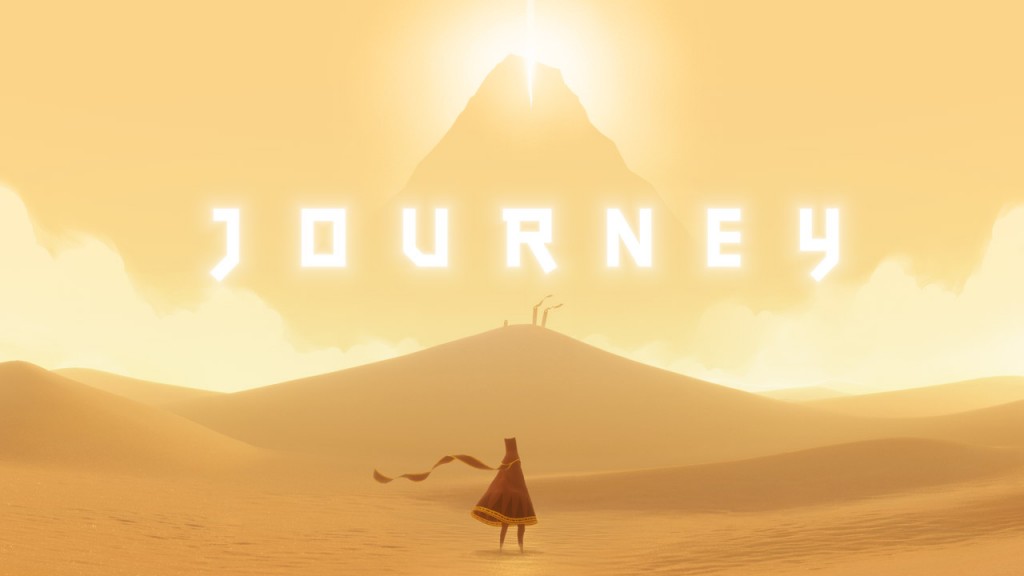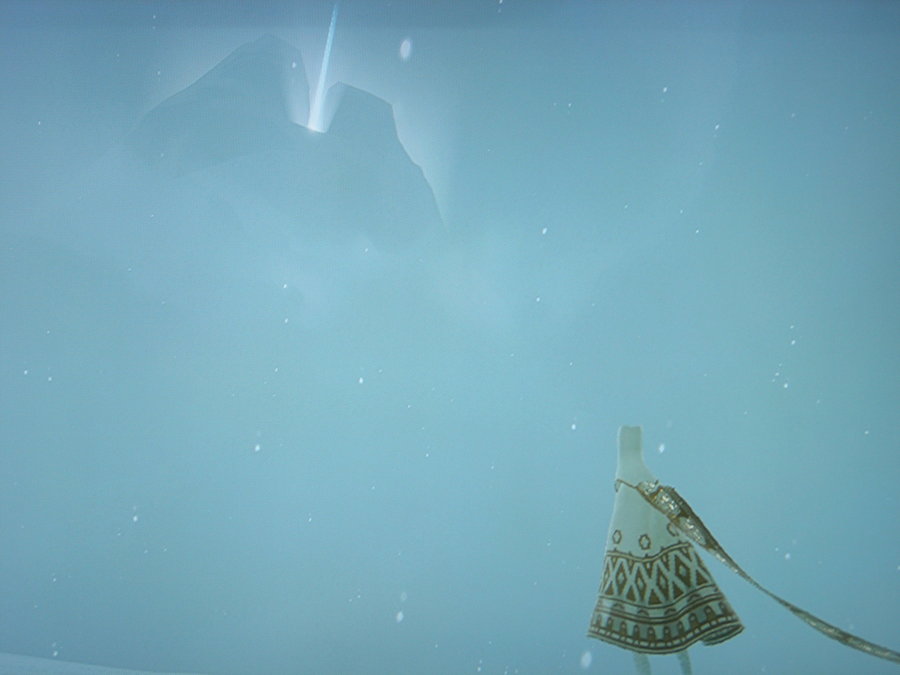Thanks to Mark Cox for the inspiration for this title. I couldn’t pass up such a shameless opportunity for punnage now, could I?
Once or twice in a console generation, a rare thing will come along. A game that breaks the boundaries of what traditionally defines a videogame, and makes us challenge our often narrow preconceptions of what gameplay, communication and narrative really mean, to deliver a beautiful and remarkable experience, the likes of which we simply never see. This game is Journey.
Last week it well and truly stole the show at the BAFTA Videogame Awards in London, taking away a whopping five out of eight awards; Artistic Achievement, Audio Achievement, Game Design, Online Multiplayer and Original Music. And although it missed out on the Best Game award to Dishonoured; it’s clear that Journey was the star of the show. Jenova Chen and her team were up and down the stage so often that host Dara O’Brien even quipped; “and now Sony would like to thank the guy that made their sandwiches, the air conditioning repair man…”.
BAFTAs and jokes aside, Journey has been winning awards all year long. There’s little doubt in anyone’s mind that it’s well deserving of all these accolades, but what exactly is it that makes this simple, £6.99 PSN game the most lauded and loved title of last year, and how has this indie game spawned such a large and devoted following and crashed into the mainstream?
For me it isn’t so much the gameplay or even the narrative, but the game’s elegant simplicity, and, as clichéd as it sounds, the effect your companions have on the journey you share together. Journey takes the simplistic yet innovative gameplay which thatgamecomany is renowned for, and builds on this by adding a unique and engrossing multiplayer element, and crucially, emotion. This all comes together to make a game that is simple to pick up and play, and yet probably the most profound and moving experience many people, myself included, have ever had with a video game.
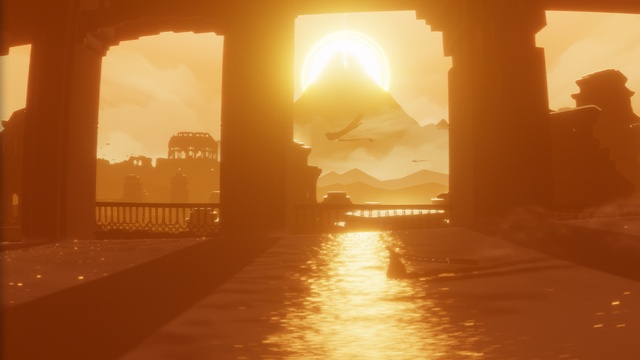
The game being set in an endless desert with a huge mountain looming through the haze, highlights and personifies this simplicity, something that even extends to the game’s interface, or rather, lack of one. Instead of a huge arrow telling you where to go and popups telling you what to do, you simply have the desert, and the mountain. The game uses the environment itself, gives you subtle visual clues and understands you don’t need to be spoon fed. It’s incredibly liberating, and lets you concentrate on the more important things, and it’s definitely something I wish more games did.
It even extends to the much-loved multiplayer aspect of the game. 15 minutes in, no doubt you’ll happily be jumping, gliding and sand-surfing around. Then out of nowhere, you will see another figure in the distance. Of course, this is no NPC, this is another player. However anyone would be forgiven for wondering, as there is no way to communicate with this mysterious companion, save by chiming or ‘singing’ to each other. The game never even displays their screen name. It seems like a gimmick at first, but as the game progresses it becomes difficult to do justice to the poignancy of it all. The thing is, when you play a multiplayer game, it’s always either competing or working with someone to ‘win’, and that’s about it. When you play a single player game, you can become more invested in the story and experience, but it’s a private one, between you and the game. Because you don’t need to keep your wits about you, you relax, and often become less situationally aware. Journey bridges this gap perfectly. It’s like playing a single player game but the narrative, emotions and experience as a whole is all enhanced by playing it through with a companion, and not wanting to let them down, which leads to a wonderful shared experience.
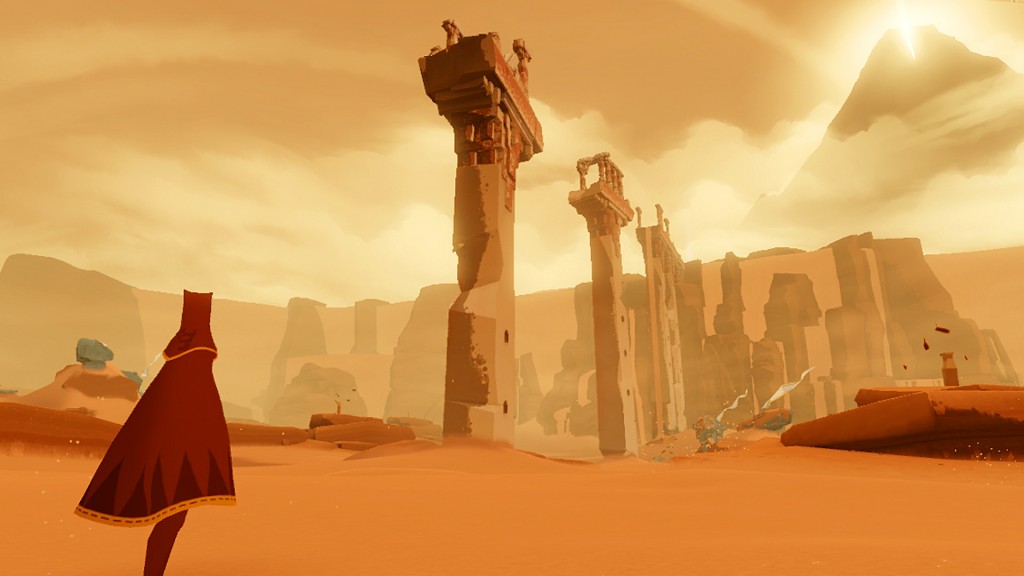
The experiences I shared with my own companion during the pilgrimage; the help we gave each other, the makeshift ‘conversations’ we had, all combined to give me an experience unlike any other. We sand-surfed down huge dunes, chiming to each other in delight, I was shown secret areas, and when my companion got into trouble I actually panicked, and rushed to their aid. I for one believe we built a bond. I wanted to help them and protect them, and I got the impression they did, too.
The whole experience is made even more meaningful from the fact that there’s never any obligation to help each other. I’ve been told that apparently you’re more invested in a decision you make yourself, rather than being told to do something. In Journey’s case, that rings true. The game never pushes two players together apart from putting them on the same map. I could’ve quite easily gone off on my own but we both made the decision to help each other. All too often playing co-op games I have found myself being rushed through the main story and frowned upon for refusing to skip cutscenes, but each person I’ve met playing Journey is always just as enthusiastic as I am, and for any game to be able to galvanise a community like that is a fantastic achievement in itself.
The storytelling too, has been praised over and over again. While the story itself may be linear, (there are certainly no intricate twists and turns of The Walking Dead persuasion that’s for sure), it’s the way Journey tells this story that makes it both engaging and mysterious. Not only is there no speech in the game but there are no words at all. Instead, the backstory and plot is told through your own progress as you explore the ruins and landscapes, and by murals that give us a glimpse of the wider world. But that’s all it ever is, a glimpse. The developers give you veiled clues and suggestions, but it’s left up to you to make your own interpretations.
The debate of whether video games should be classed as art is one that has raged on for years. Many people say they are entertainment and nothing more, others say that the unique nature of videogame’s interactivity gives potential for some unique artistic exploration. Most of us don’t really care, as long as we get a good experience. But no matter what your opinion, it can’t be denied that Journey is a truly beautiful game. There are always going to be other views; people are always going to find it boring or too short, but through its simplicity it has managed to cause a huge impact in the gaming community. It’s the type of game that, like Rez and a choice handful of games before it, really challenges the limits of what we can do with videogames as a media, and there’s no doubt in my mind at least, that Journey will be remembered fondly for years to come by many, many people.


